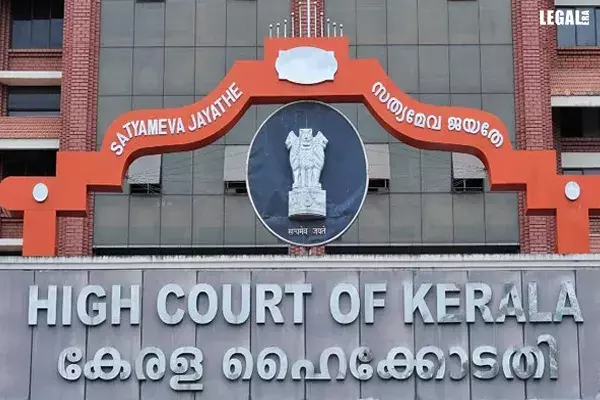Kerala High Court Passes Interim Order: EPFO to Allow Contribution Towards Higher Pension Sans Proof
The Kerala High Court by its single judge Justice Ziyad Rahman AA, while passing an interim order in the case of A.M. Yousef;

Kerala High Court Passes Interim Order: EPFO to Allow Contribution Towards Higher Pension Sans Proof
The Kerala High Court by its single judge Justice Ziyad Rahman AA, while passing an interim order in the case of A.M. Yousef and others. vs. Employees Provident Fund Organization and others., has directed the Employees Provident Fund Organization (EPFO) to allow employees to contribute towards higher pension without insisting on proof of having chosen it before, as specified in the scheme.
In the present case, a batch of petitions were filed by employees who had paid higher contributions but had not formally chosen or were not asked to choose a higher-payment option is being considered by the Court.
As per the decision rendered by the Supreme Court in EPF Organization vs. Sunil Kumar (2022), certain directions were issued in this regard with respect to the options to be submitted by the employees concerned, to be eligible for the benefits of higher pension under the Employees Pension Scheme, 1995.
The Supreme Court had permitted the employees who could not submit the options in the light of para 11(3) of the pre-amendment scheme to submit fresh options within a period of four months. Though the said period expired on 3 March, 2023, the same was further extended for two months i.e., up to 3 May, 2023.
The petitioners in these cases were employees intending to submit their options in the light of directions of the Supreme Court.
The EPF organization made available to the employees is the facility to submit the options through online mode by providing necessary links for the same on their website.
The grievance highlighted by the petitioners was that one of the details to be furnished in the said option form is the copy of the permission under para 26(6) of the Employees Provident Fund Scheme, 1952.
According to the petitioners, even though they were permitted to pay the contribution based on the salary, exceeding the ceiling limit prescribed (Rs 5,000/- and Rs 6,500/-), as contemplated under para 26(6) of the Scheme 1952, no formal option had been submitted.
According to them, submission of such an option was never necessitated or insisted upon, and instead, higher contributions were being accepted all along by the EPFO.
Therefore, they were unable to fill up the said column in the online option form, and the said form is formulated in such a fashion that, unless the details of the option under para 26 (6) of the Scheme, 1952 were incorporated, they cannot successfully submit the online options.
If they were unable to submit their options on or before the cut-off date, i.e., 3 May, 2023, they would be deprived of the benefits of the Scheme to which they are legally entitled.
In such circumstances, the petitioners sought an interim order permitting them to submit options without insisting on the details/copies of the options submitted by them under para 26(6) of the Scheme 1952.
The Court after considering all the aspects, was of the view that the petitioners had established a prima facie case, warranting an interim order. The balance of convenience also favored the petitioners, the court noted.
It was highlighted by the Court that, higher contributions were being accepted by the EPFO even without submitting options. It is also evident that in some cases, instructions were issued from some of the office of the EPFO to accept higher contributions, and in some cases, accounts of respective employees were also updated in tune with the higher payments.
The Court remarked, “there cannot be any dispute that if they are not permitted to submit their options before the cut-off date 3 May, 2023, they would be deprived of their opportunity to claim the benefits of the Supreme Court’s judgment forever.”
Consequently, the Court directed an interim order that the EPFO and the authorities under it, should for the time being make adequate provisions in their online facility to enable the employees or pensioners to furnish options in tune with the directions of the Supreme Court, without producing copies of the option selected under para 26(6) of the Employees Provident Fund Scheme, 1952.
It further directed that alternative arrangements, including permission to submit hard copies of the options, should be made or granted if appropriate modifications cannot be made in the online facility. Necessary arrangements should be made within 10 days, the Court ordered.

